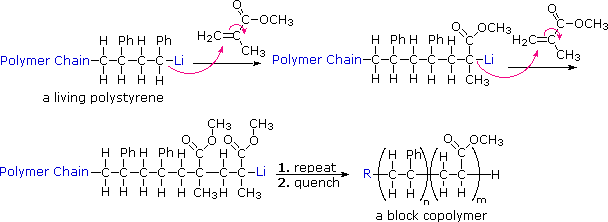High-Performance Polymers: Advanced Materials for Industry
High-Performance Polymers: Advanced Materials for Industry
Blog Article
Discovering the Varied Applications and Benefits of Polymers in Different Industries
Polymers, with their diverse variety of residential or commercial properties and performances, have actually become indispensable in numerous industries, each gaining one-of-a-kind advantages from their application. From enhancing safety and security and performance in the automotive field to revolutionizing clinical tools in the health care industry, polymers play an essential role.
Automotive Industry Applications
Polymers play a critical function in boosting the performance and resilience of different components within the vehicle industry. These functional materials are extensively made use of in the production of various parts, ranging from indoor components to under-the-hood applications. One prominent use polymers in the automobile market remains in the production of lightweight elements. By replacing traditional steel parts with polymer-based alternatives, lorries can achieve improved fuel effectiveness without compromising on strength or security.

Health Care Market Advantages
In different medical care applications, the benefits of making use of polymers are extensively identified for their diverse variety of useful properties. Polymers play an essential function in the health care industry because of their flexibility, biocompatibility, and cost-effectiveness. Among the main benefits of polymers in healthcare is their capacity to be tailored to details requirements, such as versatility, durability, and biodegradability, making them suitable for a variety of medical applications.
Polymer-based products are thoroughly made use of in clinical tools, such as catheters, implants, prosthetics, and medication distribution systems, due to their biocompatibility and ability to resemble natural cells. These products can minimize the threat of allergic responses or beings rejected, enhancing individual safety and outcomes. Additionally, polymers are lightweight, making them ideal for wearable clinical devices and making certain patient comfort.
Moreover, polymers allow the growth of innovative therapy techniques, such as hydrogels for tissue design and nanocomposites for targeted medication distribution. Their convenience of handling and sterilization makes them crucial for preserving high requirements of health in medical care setups. get more Generally, the diverse benefits of polymers contribute dramatically to advancements in clinical innovation and patient care.
Ecological Benefits of Polymers

Additionally, polymers can add to power financial savings due to their light-weight nature. In markets such as transport, lightweight polymer products can help in reducing fuel intake and greenhouse gas exhausts. Furthermore, polymers can make it possible for the advancement of energy-efficient products such as insulation materials that boost energy conservation in buildings.
Moreover, polymers play a crucial duty in decreasing water contamination. As an example, making use of polymer-based filtration systems can successfully remove toxins and contaminants from wastewater, guarding water resources and ecological discover here communities. On the whole, the ecological benefits of polymers make them useful assets in promoting sustainability and green techniques throughout different sectors.
Polymers in Electronics and Innovation
Taking into consideration the increasing demand for innovative and sustainable solutions in modern-day sectors, the integration of sophisticated polymer modern technologies in the world of electronics and innovation has become a pivotal method for driving effectiveness and performance. Polymers have transformed the electronic devices industry by allowing the production of lighter, a lot more flexible, and resilient electronic devices. From smartphones to clinical tools, polymers play a vital role in boosting item style and functionality.
One considerable advantage of polymers in electronics is their protecting properties, which help safeguard fragile electronic components from environmental factors and electrical interference. In addition, polymers are vital in the growth of adaptable screens, wearable modern technology, and printed electronics, using limitless opportunities for producing smart and interconnected devices.
Furthermore, using polymers in digital packaging has resulted in developments in miniaturization and thermal monitoring, improving the overall efficiency and integrity of electronic systems. As innovation remains to evolve, the versatility and flexibility of polymers will certainly drive even more technology in the electronic devices industry, shaping the future of technology.
Duty of Polymers in Building and Infrastructure
Polymers use many benefits in the building and construction sector due to their versatility, resilience, and cost-effectiveness. One key function of polymers in building and construction is their usage in finishes and sealers, offering defense against ecological aspects such as wetness, UV radiation, and deterioration.
Furthermore, polymers play a critical function in sustainable building practices by making it possible for the advancement of energy-efficient frameworks. Protecting products made from polymers assist regulate indoor temperature levels, minimizing the need for home heating and cooling down systems and eventually lowering power consumption. The usage of polymer-based composites in infrastructure tasks such as bridges and roads improves their long life and decreases upkeep prices. In general, the consolidation of polymers in construction and facilities displays their substantial influence on contemporary design practices.
Conclusion
In final thought, polymers play a vital function in various industries such as auto, health care, environmental, electronic devices, and building and construction. From boosting fuel efficiency in special info lorries to improving medical devices, polymers provide various advantages.
Report this page